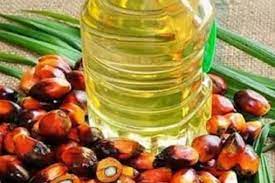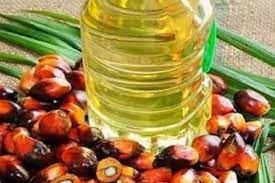
After a three-week suspension, Indonesia permitted palm oil exports to resume on Monday, but shipments were not anticipated to begin until new guidelines aimed at assuring domestic supply of the edible oil were finalised.
The world's largest palm oil producer banned shipments of palm oil on April 28 in an attempt to cut surging local cooking oil costs, upsetting global edible oil markets that are already dealing with sunflower oil supply constraints owing to the Ukraine conflict.
Last week, President Joko Widodo announced the lifting of the export ban on crude palm oil and some derivative products, expressing confidence that bulk cooking oil prices would eventually reach a target of 14,000 rupiah ($0.9546) per litre, despite the fact that prices were currently higher in some areas.
Palm oil, which is used in everything from margarine to shampoo, accounts for a third of the global vegetable oil market, with Indonesia supplying over 60% of it.
To ensure supply security, Indonesia announced that it will implement a policy known as the Domestic Market Obligation (DMO), which requires producers to sell a percentage of their products locally at a set price.
Under the DMO standards, Indonesia wants to keep 10 million tonnes of cooking oil supplies at home, according to Chief Economics Minister Airlangga Hartarto, who added that the Trade Ministry will oversee their implementation. continue reading
On Monday, traders were waiting for specifics on the DMO and other restrictions to be released.
"Sellers are first trying to clear pending quantity that was stuck because of the ban. They are accepting new orders as well, but demand is not great," said a Mumbai-based dealer with a global trading house.
"They are also not too keen to sell a lot before understanding DMO rules," added the trader.
Due to the sensitivity of the situation, a Jakarta-based company declined to be identified. It claimed it was likewise waiting for details of the laws before commencing on shipments.
Palm oil prices from competitor supplier Malaysia rose 1.67 per cent on Monday, partly reflecting the policy uncertainty in Indonesia.
When asked if Musim Mas had begun exports, spokeswoman Carolyn Lim said the company was still focused on "flooding the domestic markets with cooking oil in the hopes of reaching the target retail price," stressing that the Indonesian government was still concerned about high retail pricing.
According to Trade Ministry data, the average price of bulk cooking oil was 17,000 rupiah per litre as of Friday.
However, some farmers welcomed the lifting of the export ban.
Farmers organised rallies across Indonesia last week to protest a 70% decline in palm fruit prices as refiners stopped taking shipments because palm oil storage was full.
"There are no more long lines at palm oil mills," said palm oil farmer Irfan, who said palm fruit prices in his area of West Sulawesi had started to stabilise.
(Source:www.usnews.com)
The world's largest palm oil producer banned shipments of palm oil on April 28 in an attempt to cut surging local cooking oil costs, upsetting global edible oil markets that are already dealing with sunflower oil supply constraints owing to the Ukraine conflict.
Last week, President Joko Widodo announced the lifting of the export ban on crude palm oil and some derivative products, expressing confidence that bulk cooking oil prices would eventually reach a target of 14,000 rupiah ($0.9546) per litre, despite the fact that prices were currently higher in some areas.
Palm oil, which is used in everything from margarine to shampoo, accounts for a third of the global vegetable oil market, with Indonesia supplying over 60% of it.
To ensure supply security, Indonesia announced that it will implement a policy known as the Domestic Market Obligation (DMO), which requires producers to sell a percentage of their products locally at a set price.
Under the DMO standards, Indonesia wants to keep 10 million tonnes of cooking oil supplies at home, according to Chief Economics Minister Airlangga Hartarto, who added that the Trade Ministry will oversee their implementation. continue reading
On Monday, traders were waiting for specifics on the DMO and other restrictions to be released.
"Sellers are first trying to clear pending quantity that was stuck because of the ban. They are accepting new orders as well, but demand is not great," said a Mumbai-based dealer with a global trading house.
"They are also not too keen to sell a lot before understanding DMO rules," added the trader.
Due to the sensitivity of the situation, a Jakarta-based company declined to be identified. It claimed it was likewise waiting for details of the laws before commencing on shipments.
Palm oil prices from competitor supplier Malaysia rose 1.67 per cent on Monday, partly reflecting the policy uncertainty in Indonesia.
When asked if Musim Mas had begun exports, spokeswoman Carolyn Lim said the company was still focused on "flooding the domestic markets with cooking oil in the hopes of reaching the target retail price," stressing that the Indonesian government was still concerned about high retail pricing.
According to Trade Ministry data, the average price of bulk cooking oil was 17,000 rupiah per litre as of Friday.
However, some farmers welcomed the lifting of the export ban.
Farmers organised rallies across Indonesia last week to protest a 70% decline in palm fruit prices as refiners stopped taking shipments because palm oil storage was full.
"There are no more long lines at palm oil mills," said palm oil farmer Irfan, who said palm fruit prices in his area of West Sulawesi had started to stabilise.
(Source:www.usnews.com)





